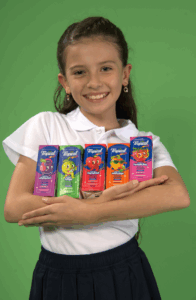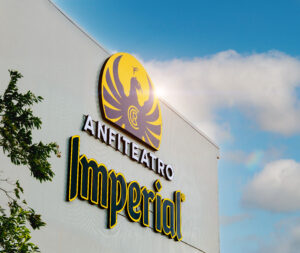- FIFCO’s sustainability agenda has strategic, specific and measurable environmental, social and governance (ESG) goals and initiatives.
This Thursday the sustainability ranking of the Corporate Reputation Business Monitor (MERCO ESG) was presented, where FIFCO stood out as the #1 beverage and food company in sustainability in Costa Rica.
Our company is the first in the country to have a solid climate action strategy, a public commitment with the SBTis (Science Based Target initiative) and important advances in our circular economy agenda; as well as ambitious goals to promote more women in leadership positions and the development of holistic leadership.
FIFCO is the only company that for 7 consecutive years has remained in the top 3 of this sustainability ranking.
For this 2023, the company ranked #2 in the general ranking, #1 in the food and beverage sector ranking, #1 in the environmental dimension, top 5 in the social dimension and #2 in governance.
These results reaffirm the company’s commitment to achieving its environmental, social and corporate governance objectives that have earned it an outstanding reputation in its industry at the regional level.
The 2023 ranking once again leaves FIFCO in a privileged position after reaching first place in 2022, 2020, 2019, 2018 and 2017, standing out in the “Food and Beverages” category as the most environmentally responsible company, as well as the most responsible internally, with its customers and with society in general.
SBTI
An example of this commitment is the company’s recent incorporation into the global Science Based Target Initiative (SBTI). This tool aims to promote collaboration and the adoption of scientific targets to reduce greenhouse gas (GHG) emissions and contribute assertively to climate resilience.
Specifically, in the short term, the company will replace a bunker boiler at its brewery and install equipment that runs on renewable electricity. This change will enable the reduction of 15,000 tons of greenhouse gases per year, equivalent to 32% of the operation’s total emissions in Costa Rica.
The replacement of the boiler that currently consumes bunker by the electric equipment is scheduled for 2024, while three other similar changes will generate a profound transformation of the boiler area. The implementation of these changes will require an investment in the purchase of equipment, civil works and infrastructure development for the electrical connection. The next replacements, which will be for the refreshment plant boilers, will take place in 2025 and 2026. This additional step will reduce an additional 5,000 tons of its carbon footprint over the next five years.
Maria Pía Robles, FIFCO’s Corporate Relations Director, sustained that the actions framed in the SBTI efforts go beyond technological change; these adjustments are related to an entire climate action strategy that addresses, from a risk management perspective, the elements of adaptation, damage and loss to the potential impacts of Climate Change. In this sense, the SBTI strategy also includes a chapter dedicated to biodiversity conservation and natural capital regeneration efforts.
“With the SBTI initiative we accept that the premise is to make deep changes in emissions reduction while continuing to offset the remaining footprint under a carbon-positive approach,” Robles pointed out.
Betting on circularity
“FIFCO Circular” is the name of a project that involves the adoption of the Material Circularity Indicator (MCI), from the Ellen McArthur Foundation and Granta Design. Specifically, the company aims to transform beverage production to a circular model in which resources, materials and products are kept “circulating” within the value chain for as long as possible. This project not only seeks to offer products with a lower environmental impact, but also generates economic opportunities by making resource management more efficient. After its start-up in 2021, FIFCO has recovered 5,579,001 kilograms of recycled materials and has avoided the generation of 1,073 tons of polyethylene terephthalate (PET) in packaging. Part of the recovered material has been possible thanks to 4,349 volunteer hours that allowed recovering 7,783 kilograms of waste.
Data-driven decisions
To make decisions that generate real impacts, FIFCO had to quantify its emissions, project the magnitude of its commitment until 2032 and estimate its contribution to global emissions. This was possible because the company has had measurements of all emissions from its operation in Costa Rica since 2012. The company is even currently developing a framework called “expansive sustainability” in which data science and artificial intelligence are combined to find more effective alternatives to achieve corporate sustainability goals.
FIFCO’s incorporation to SBTI is also framed within the sustainability strategy called, “FIFCO Trasciende” (FIFCO Transcends) which was officially launched in 2022 and includes nine sustainability goals towards 2025. Three of these goals are environmental, five are social and one focuses on corporate governance. The goals are designed to be measurable and specify what they are intended to achieve and in what timeframe they will be achieved. Taken together, these goals share the same intention: to create environmental, social and governance value in the different countries where the corporation operates.
These goals include making 82% of its packaging environmentally friendly; achieving that 60% of the materials used are within a circular economy model (see attached box) and continuing to protect key ecosystems for the conservation of the water resource that the company regularly uses in its business; in addition to mitigating and offsetting the carbon produced by the industry. FIFCO’s other goals on a social scale include ensuring that its low-alcohol products represent at least 55% of its production volume; bringing more than 40% of women to leadership positions within the company and reducing by 50% the number of employees suffering from some condition of multidimensional poverty.
“The rigor, perseverance and permanent improvement that FIFCO pursues with sustainability is a corporate priority because we consider that the company’s capacity to generate and maintain long-term value in a changing and challenging context is what will allow us to face the present and future of the company with better risk management and greater capitalization of opportunities,” explained Robles.


